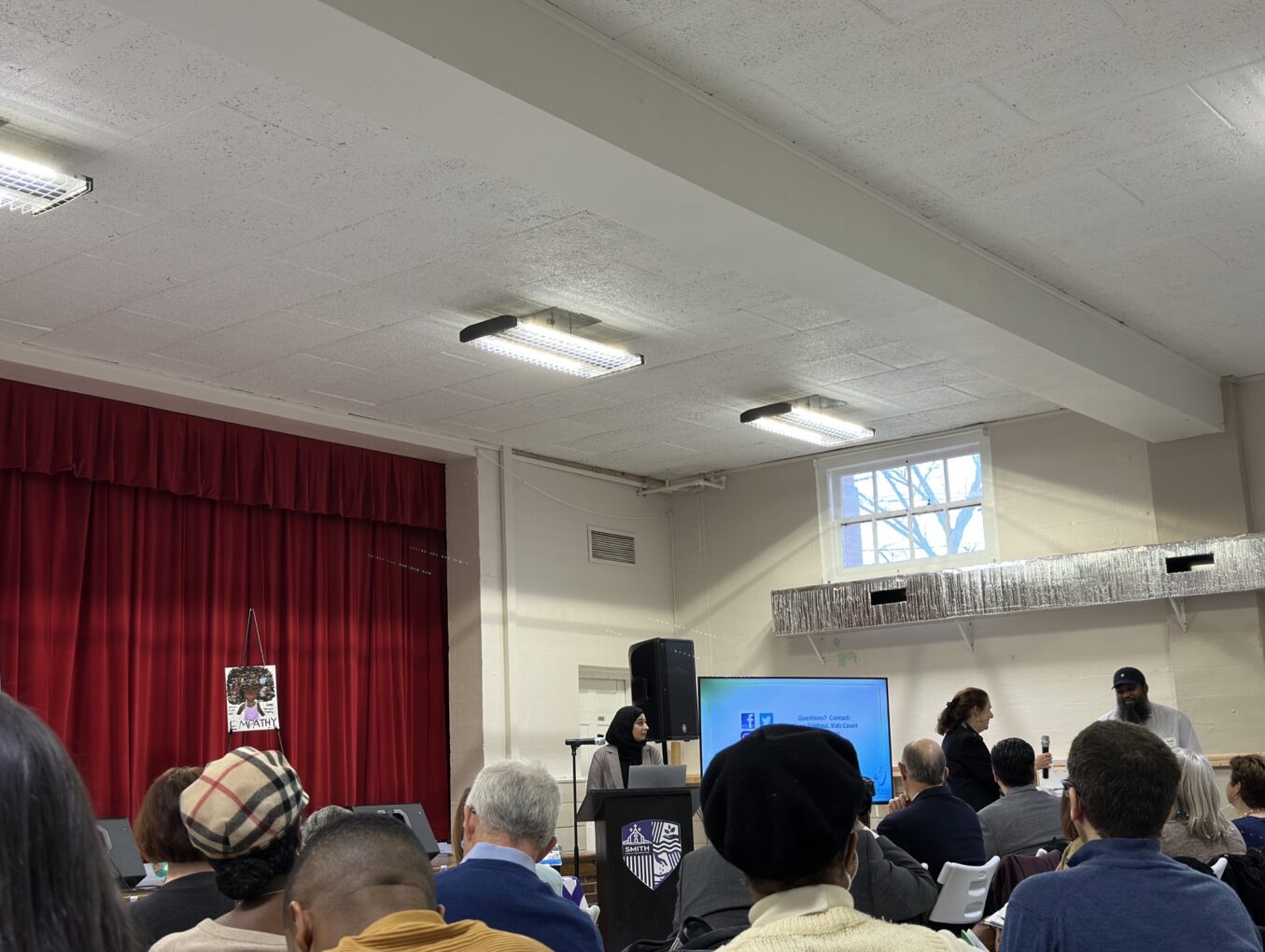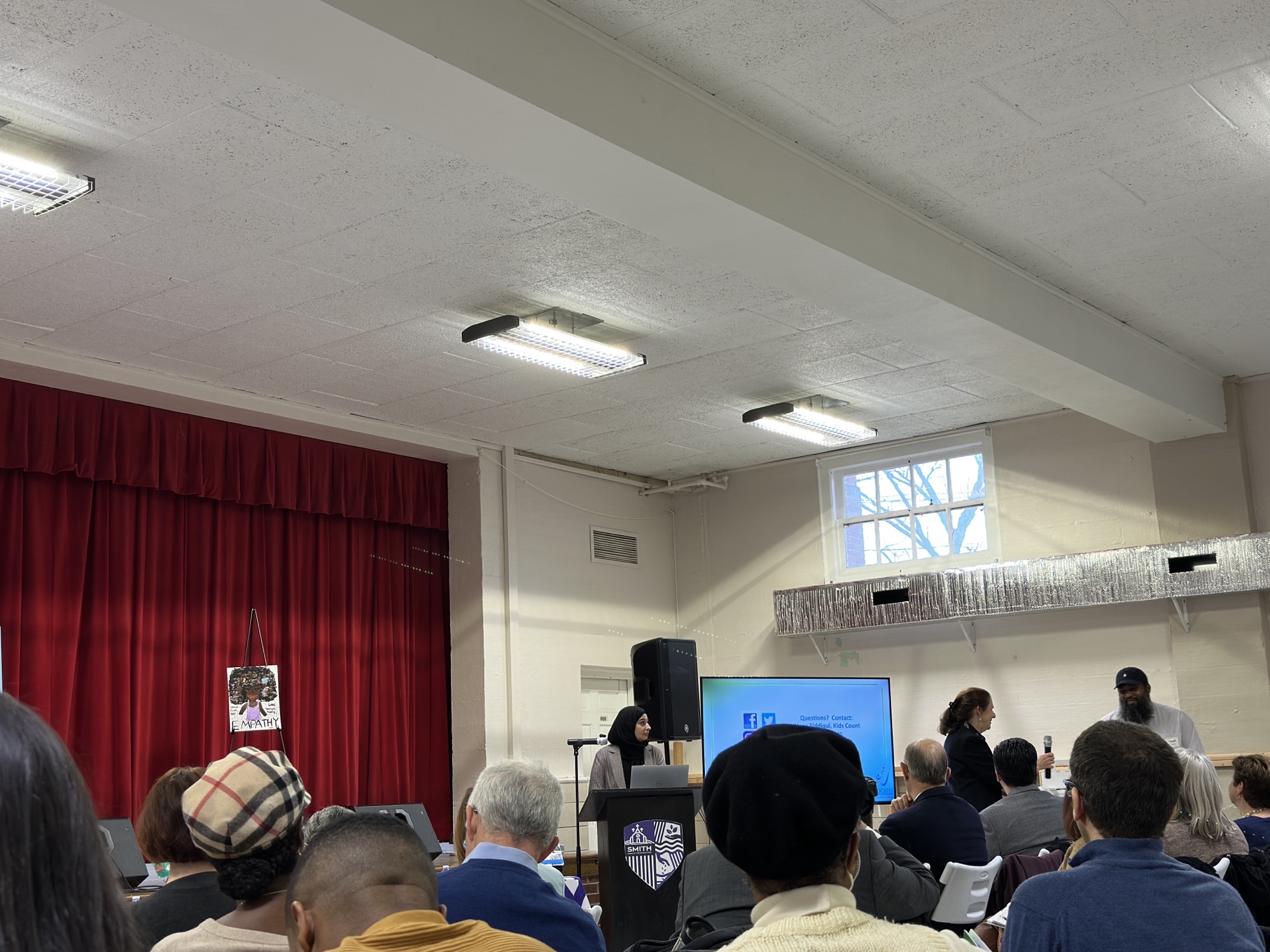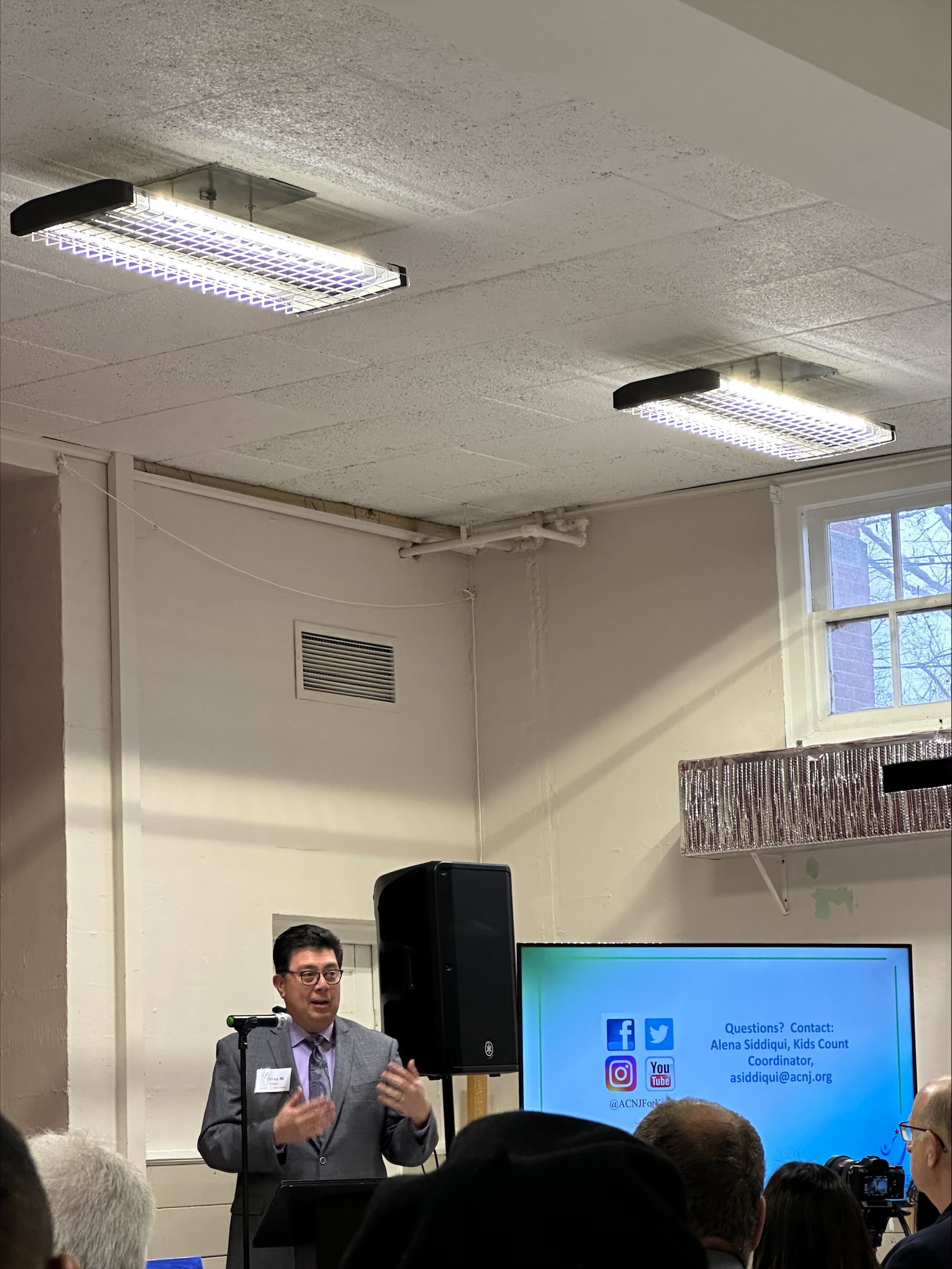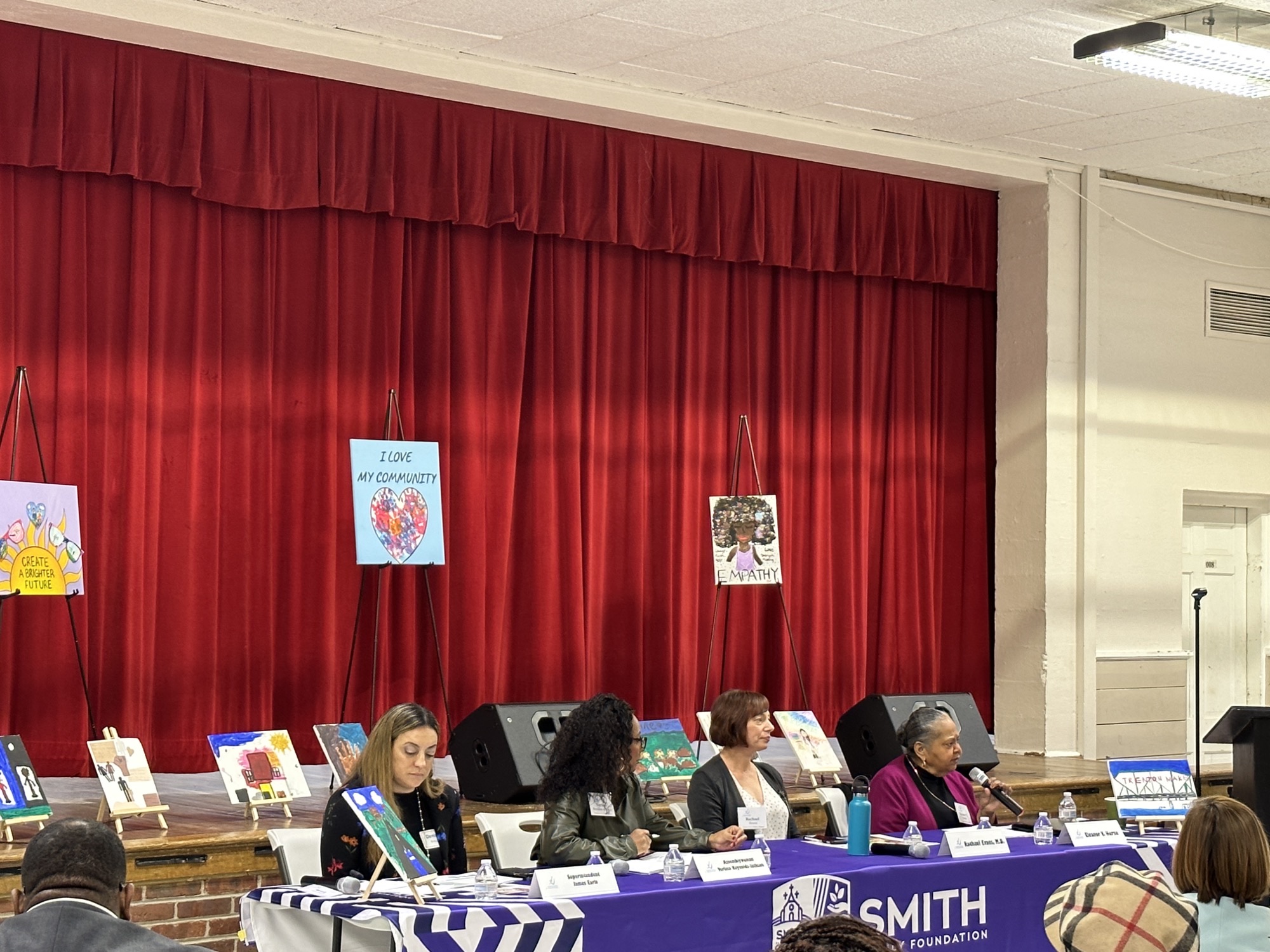Trenton Kids Count: An Important Analysis of Our Community’s Youth

Members of the Trenton community and beyond gathered on Wednesday, January 25, for an essential conversation regarding our community’s youth. Advocates for the Children of New Jersey have compiled critical insights into the lives of Trenton youth, including demographics, economic well-being, education, family and community, health, safety, and risky behaviors. These insights allow us to take inventory of the present state of affairs and empower leaders and key stakeholders to put policies and initiatives in place better to prepare our youth for a healthy and happy future. With advocates, politicians, and decision-makers all convening for this important cause, there is no doubt that our city’s youngest residents are in great hands.
The morning started with a statement from Charles Venti, the Chair of the Advocates for Children of New Jersey Board of Trustees. In discussing how this research will impact our communities, Venti noted, “Why does ACNJ publish this kind of data? We gather and publish this kind of data because policymakers, including elected officials and government agencies, use the data to make informed decisions, and service providers use data to improve their response to emerging child-related issues in their communities and their city. Grant writers use the data to write proposals and solicit support programs to help children and families. We publish the data so that all of us here today become better and more informed advocates, using the data to identify and address problems facing children in your own community.”
After these remarks, Atiya Weiss, Executive Director of The Burke Foundation, took to the podium to tell guests more about what the morning had in store. In her notes, she mentioned some of the highs and lows our community has faced since the last Trenton Kids Count assessment in 2019. She stated, “The Trenton Kids Count 2023 data reports many promising trends, including fewer low birth weight births, a decrease in the rate of children living in poverty, and a decrease in infant mortality. But the report also shows there’s much work to be done.”
She continued, “To that end, we’ve invested $2 million over the last five years towards initiative serving the community, and we’re committed to listening to Black and Brown families to understand their needs in navigating the healthcare system, the injustice that they face, and to invest in their solutions. We believe in data and research to advance equity, to promote early childhood development, and to improve the health of babies, families, and communities.”

Later in the morning, Alena Siddiqui took the stage to tell attendees more about the incredible findings of the 2023 Trenton Kids Count report. Ms. Siddiqui is the Kids Count Coordinator from Advocates for Children of New Jersey, and has worked closely with the development of this project. Some highlighted subject areas addressed included school enrollment and retention, data on childbirth, family economic security, and more. The full report is here: ACNJ – Trenton Kids Count.
In addition to these highlights, she also addressed some of the challenges ACNJ faced in compiling this data, including differences in calculations and outcomes due to the COVID-19 pandemic. Once the data highlights were completed, Ms. Siddiqui opened the floor to the audience, resulting in powerful and productive conversations.
Community assets highlighted in the report include:
- Community doulas play an integral role in improving maternal and infant health, thanks to TruDoulas of New Jersey and the AMAR Community-based Doula Program at the Children’s Home Society of New Jersey
- In-home, postpartum nurse visits, providing compassionate care and helpful resources through Family Connects Mercer County.
- Oral healthcare and education, serving thousands of Trenton children through the KinderSmile Foundation’s Community Oral Health Center
- Corrective eye care services that include providing glasses free of charge for children who require vision correction through the Henry J. Austin Health Center’s partnership with Vision to Learn
- A residential program for high school girls called HomeWorks, where scholars live together in a dorm from Sunday to Friday and receive academic and identity-driven leadership enrichment activities.
- Meeting students’ mental health needs with training on adverse childhood experiences (ACEs), trauma-informed care, healing-centered engagement, and Youth Mental Health First Aid for teachers, administrators, school staff, and families through the Foundation for Educational Administration.
- The Trenton Community Street Teams (TCST), a community-based violence intervention and prevention initiative designed to eliminate the cycle of violence in Trenton by treating the issue as a public health crisis

Another one of the morning’s highlights was a panel conversation from some of our community’s fiercest advocates, including Dr. Rachael Evans, Chief Medical Officer of the Henry J. Austin Health Center, Denise Kreiss of Trenton Public Schools, and Assemblywoman Verlina Reynolds-Jackson, NJ Assembly, District 15. This panel was introduced by Jeffrey M. Vega, President and CEO of the Princeton Area Community Foundation (PACF). Per Vega, “At the Community Foundation, we believe that thriving philanthropy leads to thriving communities. Together, we must build on the work of this report and work collaboratively to ensure that all of our children can thrive.”
Eleanor Horne, Trustee Emeritus of the Princeton Area Community Foundation, moderated this star-studded panel. As representatives of the health, educational, and political sectors, respectively, the three panelists provided the audience with critical insights from their professions and experiences. Likewise, the expertise and commitment of Eleanor Horne shone through with every question asked and remarked made. The afternoon closed out with remarks from Katherine N. Nunnally, MPA, the Executive Director and CEO of the Smith Family Foundation.
The data and findings presented will undoubtedly serve our city’s youth for years. Per Mayor of Trenton Reed Gusciora, “We’ve seen a sharp decrease in the number of juvenile arrests as well as admissions to detention. As mayor, I have prioritized directing resources and opportunities to youth and will continue to drive the services and initiatives needed to help our children on a pathway to success. Trenton Kids Count data is public accountability of our policy and decision-making. The data not only tells us what’s working and what’s not but also highlights opportunities for growth.”
As we move boldly ahead towards a better future for our children, there are myriad opportunities for you to get involved in these critical conversations. ACNJ, in partnership with the Trenton Kids Count Committee and the funders, will host upcoming community conversations to work towards creating actionable items that will improve the lives of Trenton’s children. The dates and topics are as follows:
February 15 – Education and Development
March 15 – Health and Human Services
April 19 – Juvenile Justice and Crime
May 17 – Housing and Economics
If you wish to participate in these discussions, please register online at acnj.org. Details will be posted closer to the dates of the events, so please continue to monitor their website for further information.
This event would not be possible without the support of ACNJ. ACNJ has been the trusted, independent voice putting children’s needs first for over 40 years.
We educate the public and policymakers and equip caregivers with the information they
need to be their child’s strongest ally. Our work results in better laws and policies,
adequate funding, and vital services for children and families. This means more children
are allowed to grow up safe, healthy, and educated. If you have any questions for the ACNJ, please get in touch with them at advocates@acnj.org or (973) 643-3876. Our children’s future relies on us, so may we all use these critical insights to forge a better future for Trenton’s next generation.

The post Trenton Kids Count: An Important Analysis of Our Community’s Youth first appeared on TrentonDaily.
Powered by WPeMatico
